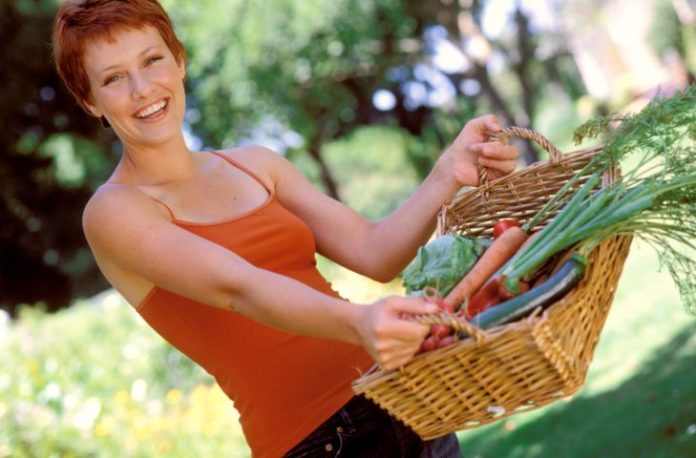New Australian research has found first-time mums are skimping on fruit and vegetables, putting their babies at risk of longer-term health problems. The Melbourne study into the eating habits of 529 new mothers found just 58 per cent met the recommended fruit intake of two serves a day, and only one in ten (7%) met the recommended five serves of vegetables a day.
The research, published this month in the Dietitians Association of Australia’s journal Nutrition & Dietetics, found breastfeeding mothers were doing better than their non-breastfeeding counterparts. Lead researcher Deborah Leslie from Deakin University said: ‘Our study found breastfeeding mums eat about half a serve more vegetables, or around an extra ¼ cup of cooked vegetables, than non-breastfeeding mums. They also eat a greater range of fruit and vegetables.’ Despite this, she said the new mums in her study, whether they breastfed or not, had a poor intake of fruit and vegetables and this was concerning for the health of future generations. According to Ms Leslie, mothers who eat more fruit and vegetables, and a greater variety of healthy foods, are more likely to have children who try new foods and eat a varied diet. ‘Babies are exposed to flavours before they’re born and also through breast milk. So a mum who regularly eats a range of fruit and vegetables will be helping to improve her child’s acceptance of those foods,’ said Ms Leslie. And for mothers, she said eating enough fruit and vegetables can reduce the risk of heart disease, stroke, diabetes, obesity and some cancers.
Around 70 per cent of the women in her study were breastfeeding their child, two thirds had a healthy prepregnancy weight, and around one in five were classified as being of low socioeconomic position. Dietitians Association of Australia’s fruit and vege tips for new mums:
• Slice fresh fruit over breakfast cereal or porridge
• Serve canned fruit with yoghurt for dessert
• Cut up fresh fruit and keep in a container in the fridge for a quick and easy snack
• Serve chopped fresh vegetables with salsa or low-fat dip as a snack
• Make an omelette containing mushrooms, asparagus and tomatoes
• Grate vegetables into pasta sauces
• Add extra vegetables to casseroles and soups.
Source: Dieticians Association of Australia











